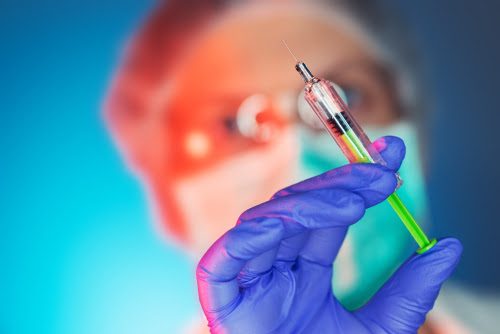If you are considering a Doctor of Immunology degree, you’ve come to the right place. Immunology is a branch of medicine that deals with disease immunity. Immunologists are research scientists or specialists who study, analyze, or treat disease processes that involve the immune system, whose job is to keep the body protected.
Immunologists are specifically interested in diseases affecting natural immunity. These mainly involve allergies, sinus inflations, pneumonia, and abscesses that repeatedly happen despite treatment. Immunologists are specialists that aim to diagnose and alleviate allergic and immunologic ailments accurately.
Earning a Ph.D. in Immunology degree is considered one of the highest qualifications that can be achieved by students who wish to pursue advanced skills in medical sciences and immunology and carve out a thriving career in the fields.
Through a Doctor of Immunology degree program, graduates are expected to be immersed in laboratory research. Immunologists may work in laboratories for the investigation and handling of updates of developments in diseases like cancer. One alternative is to work in the laboratory research of virology, the study of viruses, and dealing with microorganisms that are considered a threat to public health.
Aside from this, students learn about the development of new and more effective vaccines throughout the entirety of their research careers.
THE 10 BEST DOCTOR OF IMMUNOLOGY SCHOOLS
MEDICAL COLLEGE OF WISCONSIN
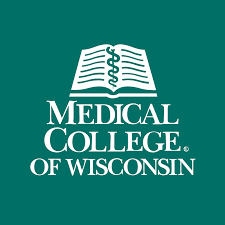
MICROBIOLOGY & IMMUNOLOGY PHD PROGRAM
School Highlights: The Doctor of Philosophy in Microbiology & Immunology (Ph.D. MI) program at the Medical College of Wisconsin retains instructors from a vast number of relevant fields such as:
- microbial genetics,
- bacteriology,
- immunology,
- virology, and more.
Students benefit from invaluable educational relationships with their professors and complete enriching research projects alongside some of the most brilliant minds in science.
The curriculum seeks to train the next generation of cellular and molecular biologists through a wide variety of departmental activities. Students receive an incredibly broad education that draws from numerous biomedical sciences.
Coursework Sample:
- Advanced Molecular Genetics
- Mucosal Pathogenesis
- Tumor Immunology
Campus Location: Milwaukee, WI
Accreditation:
- Higher Learning Commission
LEARN MORE ABOUT THE MEDICAL COLLEGE OF WISCONSIN’S MICROBIOLOGY & IMMUNOLOGY PHD PROGRAM
UNIVERSITY OF IOWA

IMMUNOLOGY (PHD)
School Highlights: The University of Iowa supplies a 72-credit terminal degree in immunology, a comprehensive, interdisciplinary training program approaching basic and applied concepts. The curriculum involves extensive laboratory research, and the coursework allows students to pursue personal areas of interest aligning with career goals.
There is also an exciting option for undergrads to earn a combined M.D./Ph.D., which puts them in an excellent educational and professional position. Still, applicants must gain acceptance to both degrees individually before entering the integrated curricula.
Coursework Sample:
- Basic Biostatistics and Experimental Design
- Principles of Molecular and Cellular Biology
- Graduate Immunology and Human Disease
Campus Location: Iowa City, IA
Accreditation:
- Higher Learning Commission
LEARN MORE ABOUT THE UNIVERSITY OF IOWA’S IMMUNOLOGY (PHD)
HARVARD UNIVERSITY
PHD PROGRAM IN IMMUNOLOGY
School Highlights: Aside from its notability as one of the most distinguished schools in the entire world, the excellence of Harvard University is easily measured by its near-perfect retention and graduation rates. It is also a highly competitive school, as are its individual degrees, such as the Doctor of Philosophy degree in Immunology.
Applicants who are lucky enough to gain acceptance into this program engage in research projects with the most brilliant immunologists in academia with paramount global results.
These individuals go on to change the entire industry with their findings and refine and develop all of the necessary skills to do so at Harvard University.
Coursework Sample:
- Advances in Immunology
- Critical Reading for Immunology
- Applied Statistics and High Throughput Data Analysis for Immunologists
Campus Location: Cambridge, MA
Accreditation:
- New England Association of Schools and Colleges
LEARN MORE ABOUT HARVARD UNIVERSITY’S PHD PROGRAM IN IMMUNOLOGY
YALE UNIVERSITY

DOCTOR OF PHILOSOPHY IN IMMUNOLOGY
School Highlights: Yet another of America’s most prestigious schools, Yale University, also offers a Ph.D. in Immunology that is renowned across the globe. The curriculum draws from coursework in the master’s and doctoral programs in biological and biomedical sciences and provides a specialized track in Immunology.
The major-specific coursework emphasizes collaborative interdisciplinary training and interactive research. It is specifically designed for individuals seeking future employment in either teaching or research. The program itself is highly diverse and attracts students from a huge variety of different research areas.
Coursework Sample:
- Biology of the Immune System
- Advance Immunology
- Advanced Seminar in Immunology
Campus Location: New Haven, CT
Accreditation:
- New England Association of Schools and Colleges
LEARN MORE ABOUT YALE UNIVERSITY’S PHD IN IMMUNOLOGY
STANFORD UNIVERSITY

PHD PROGRAM IN IMMUNOLOGY
School Highlights: Stanford University is well-known internationally as an absolutely phenomenal American school that provides the highest quality education available. The Doctor of Philosophy in Immunology supplies two exciting concentration options in either:
- Molecular, Cellular, and Translational Immunology
- or Computational and Systems Immunology.
The former includes a strong emphasis on the molecular applications of clinical and cellular immunology, with coursework in biology, genetics, biochemistry, and more.
The latter is geared toward training a new generation of scientists to develop integrated experimental/computational solutions to global immunology problems.
Coursework Sample:
- Molecular, Cellular, and Translational Immunology
- Computational and Systems Immunology
Campus Location: Stanford, CA
Accreditation:
- Western Association of Schools and Colleges
LEARN MORE ABOUT STANFORD UNIVERSITY’S PHD IN IMMUNOLOGY DEGREE
UNIVERSITY OF PENNSYLVANIA

DOCTOR OF PHILOSOPHY IN IMMUNOLOGY
School Highlights: As the first to offer a stand-alone degree in the field of Immunology, the University of Pennsylvania is a pioneer school for its Ph.D. The Immunology Graduate Group supplies an incredibly broad and far-reaching doctoral program that pulls from eight distinct areas. These include:
- The School of Medicine,
- The College of Arts and Science,
- The Children’s Hospital of Philadelphia,
- The Hospital of the University of Pennsylvania,
- The School of Dental Medicine,
- The Wistar Institute,
- The School of Veterinary Medicine,
- and The Abramson Family Cancer Research Institute.
As such, at UPenn, students receive one of the most in-depth terminal curricula in Immunology in the nation.
Coursework Sample:
- Vaccines and Immunotherapeutics
- Elective Tutorials In Immunology
- Molecular Immunology
Campus Location: Philadelphia, PA
Accreditation:
- Middle States Commission on Higher Education
LEARN MORE ABOUT THE UNIVERSITY OF PENNSYLVANIA’S DOCTOR OF PHILOSOPHY IN IMMUNOLOGY
DUKE UNIVERSITY

IMMUNOLOGY: PHD
School Highlights: Duke University is a massively well-respected institution of higher education that not only has an excellent football team, but a tremendously esteemed Department of Immunology, as well, which is now celebrating its 25th anniversary.
The Doctor of Philosophy program has eight concentrations available, far and away more options than any other university listed here.
Duke also operates five affiliated centers on campus that provide further educational resources and research tools to immunology doctorate students. These centers include:
- the Vaccine Institute,
- the Center for AIDS Research,
- the Cancer Institute,
- the Center for Host-Microbial Interactions,
- and the Center for Research in Autoimmunity and Multiple Sclerosis.
Concentration Options:
- Immune System Development
- Immune Signaling Pathways and Networks
- Autoimmune and Inflammatory Diseases
- Adaptive Immune Function and Infectious Disease
- Innate Immune Function and Infectious Disease
- Mucosal Immunology
- Transplant Immunology
- Cancer Immunology
Campus Location: Durham, NC
Accreditation:
- Higher Learning Commission
LEARN MORE ABOUT DUKE UNIVERSITY’S IMMUNOLOGY DOCTORAL DEGREE
UNIVERSITY OF CHICAGO
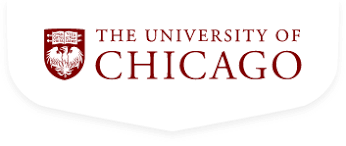
PH.D. IN IMMUNOLOGY
School Highlights: With a 99% retention rate, the University of Chicago is one of the most academically successful schools in the country, where students are massively satisfied with their educations.
The Doctor of Philosophy in Immunology curriculum offers fascinating classes that can be found at very few other higher education institutions and gives students a comprehensive approach to the discipline.
It is a multidisciplinary program with training in all of the fundamental components of immunology with select specialization topics, as well. Applicants can expect to work closely with departmental faculty members and cohorts from related programs.
Coursework Sample:
- Protein Fundamentals
- Structure and Function of Membrane Proteins
- Genetic Analysis of Model Organisms
Campus Location: Chicago, IL
Accreditation:
- Higher Learning Commission
LEARN MORE ABOUT THE UNIVERSITY OF CHICAGO’S PH.D. IN IMMUNOLOGY
TUFTS UNIVERSITY

PHD PROGRAM IN IMMUNOLOGY
School Highlights: Provided through the Graduate School of Biomedical Sciences, the Tufts University Ph.D. Program in Immunology has an interdisciplinary approach to the field, with coursework drawn from numerous departments, such as:
- Medicine,
- Molecular Biology & Microbiology,
- and Developmental, Molecular, & Chemical Biology.
At the outset of the program, students engage in clinical aspects of the curriculum that maximize time spent between students and their personal faculty mentors through real-world encounters with patients.
The program strongly emphasizes interactive training in pathogenic analysis, and graduates leave this fabulous university with enormous practical experience.
Coursework Sample:
- System Approaches to Immunology
- Inflammatory & Chronic Inflammation Diseases
- Applied Ethics for Scientists
Campus Location: Medford, MA
Accreditation:
- New England Association of Schools and Colleges
LEARN MORE ABOUT TUFTS UNIVERSITY’S PHD PROGRAM IN IMMUNOLOGY
UNIVERSITY OF WASHINGTON

IMMUNOLOGY PHD PROGRAM
School Highlights: The University of Washington’s Ph.D. Program in Immunology is a comprehensive approach to a multidisciplinary curriculum emphasizing the connection between biological systems in health and the immune system.
The coursework provides excellent opportunities for students to concentrate their coursework on various areas of study, such as cellular, systems biology, and molecular immune perspectives.
Doctoral enrollees can expect to participate in one-on-one hands-on research undertakings alongside faculty mentors in an environment that allows them to contribute fundamental research findings to the field.
Coursework Sample:
- Immunological-Based Diseases and Treatment
- Immunology Research in Progress
- Intersection of Innate and Adaptive Immunity in Disease
Campus Location: Seattle, WA
Accreditation:
- Higher Learning Commission
LEARN MORE ABOUT THE UNIVERSITY OF WASHINGTON’S IMMUNOLOGY PHD PROGRAM
FREQUENTLY ASKED QUESTIONS
What educational requirements are needed to become an Immunologist?
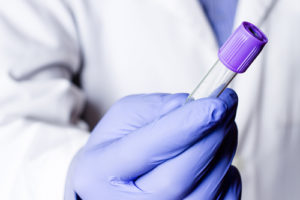
Becoming an immunologist requires extensive education, leading to a Doctor of Medicine (MD) degree and certification from the American Board of Allergy and Immunology (ABAI). For those who wish to research immunology aside from practicing medicine, a Ph.D. in Immunology can be pursued.
Students in Ph.D. programs need to complete all clinical and course requirements for medical school. They need to have successfully completed a related bachelor’s degree and master’s degree program and successfully work on their dissertation research, which is required in the graduate program.
In all branches of immunology, a solid knowledge of the areas of biology, chemistry, and mathematics is needed. It is also necessary to have a clear understanding of computers, electronics, clerical knowledge, management skills, deductive reasoning, and communication.
Scientific research immunologists need to acquire a Ph.D., while those who wish to become pediatricians or physicians need to earn an M.D. To be able to obtain a medical license as an immunologist in the field of research, a Ph.D. is also required, or at least two to three years of training in a related accredited program.
A residency program or fellowship program may be required as well. The doctorate holder must also pass the American Board of Allergy and Immunology examination.
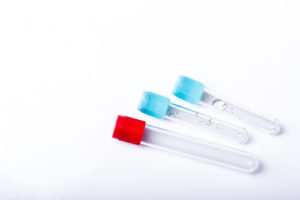
What does an Immunologist do?
Immunologists specifically diagnose and treat patients suffering from immunological conditions. During initial visits, immunologists meet with the patients to discuss current symptoms and medical history before conducting physical examinations. With results on hand, a treatment plan can be developed and implemented to meet the patient’s needs.
If one decides to research along with practicing immunology, the responsibility will be focused more on conducting and designing immunological experiments in a clinical or laboratory research setting.
Immunologists also provide services for patients afflicted with primary or secondary immune deficiency conditions like genetically determined antibody deficiencies or immune system disorders. They treat secondary immunological conditions like autoimmune diseases and human immunodeficiency virus (HIV) infection.
Immunologists hold diagnostic tests aside for developing a feasible treatment strategy. Apart from giving their patients the medical attention and care they need, immunologists may also conduct clinical or laboratory research in the field.

What is the salary range for holders of a Ph.D. in Immunology degree?
The cost of a Doctor of Immunology degree program can vary based on various factors. The duration of the program and financial aid alternatives depend on where the university is based and may affect the cost of the degree. Is it worth it for graduates?
Salary.com reports that as of February 2023, physicians specializing in a specific discipline, including immunologists, may earn a mean annual salary of $271,200.
The salaries of immunologists usually range from $219,236 to more than 360,991 a year, depending on specialization, workplace, and area of residence. There are cases wherein immunologists and those working in hospitals and private companies earn higher wages, especially those who are going to pursue medicine instead of a Ph.D.
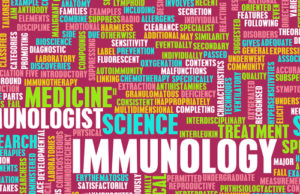
What are the potential career opportunities for a Ph.D. in Immunology degree holder?
Research is one of the most significant aspects of immunology. Numerous immunologists’ research and evaluation of the immune system end up as valuable information for the development of treatment processes for certain illnesses.
In the field of research, immunologists work in specific laboratories that allow them to study and experiment on the interactions of cells, chemicals, and genes within the body and determine what the immune system needs to function well.
Graduates with a Doctor of Immunology degree may also pursue careers such as pediatric immunologists or pediatric allergists. They are responsible for checking for and treating problems along with allergies and system malfunctions.
Pediatric immunologists deal with children, specifically infants and teenagers. They work in children’s hospitals, community hospitals, private offices, and university medical centers.
Physicians and pediatricians specializing in immunology require a medical degree and numerous years of training in residency and specialized immunology and allergy problems as well. Numerous immunologists may also decide to pursue teaching in colleges instead of practicing the discipline itself.
While this particular branch of immunology entails a keen interest in and engagement with research, it may require a personality most appropriate for guidance and instruction. A Ph.D. in Immunology is also necessary for an instructor to officially become a faculty member along with other specialists and experts working in the academe.
Instead of taking a specialization in immunology, one can work as a general internist. In this case, general internists are involved in the diagnosis and treatment of patients with conditions related to the internal body system. Aside from immunological disorders, patients can be treated with gastrointestinal problems, endocrinology disorders, or hematological diseases.
Due to this, graduates need to accomplish a medical program and an internal medicine residency aside from passing the board certification exam of the American Board of Internal Medicine. As an option, the student may choose a different area of specialization in the field of medicine, like that of a psychiatrist.

What are the schools that offer a Ph.D. in Immunology program?
Currently, there are no online or hybrid doctoral degrees in immunology available in the United States. However, the ten best and most popular brick-and-mortar programs include the Medical College of Wisconsin in Milwaukie, the University of Iowa in Iowa City, Harvard University in Cambridge, Massachusetts, Yale University in New Haven, Connecticut, Stanford University in California, the University of Pennsylvania in Philadelphia, Duke University in Durham, North Carolina, the University of Chicago in Illinois, Tufts University in Medford, MA, and the University of Washington.
The Bottom Line
Adequate knowledge in the field of immunization is insufficient to be a successful immunologist. It is expected that those who have graduated in this profession and have earned a Ph.D. are fully adept in other related disciplines.
A Doctor of Immunology degree program will focus on internal medicine, public health, immunology research, immunological disorders, autoimmune diseases, human immune system and immune system disorders, infectious diseases, allergy and immunology, and so much more.
Graduates have a deeper understanding of the functioning of the body as it is connected to issues beyond immunization, medications, therapies, test materials, and surgical procedures.,
Medical schools that offer an immunology fellowship program are your best bet for awesome experiential learning experiences and clinical rotations.
Additional Resources:
- The Best Doctor of Osteopathic Medicine (D.O.) Degree Programs: Salary and Information
- The Best Doctor of Molecular Biology (PhD Mol Biol) Degree Programs: Salary and Info
- Doctor of Acupuncture and Oriental Medicine (D.A.O.M.) Salary and Information
- The Best Online Doctor of Health Science (D.H.S./D.H.Sci) Degree Programs – Salary and Information
